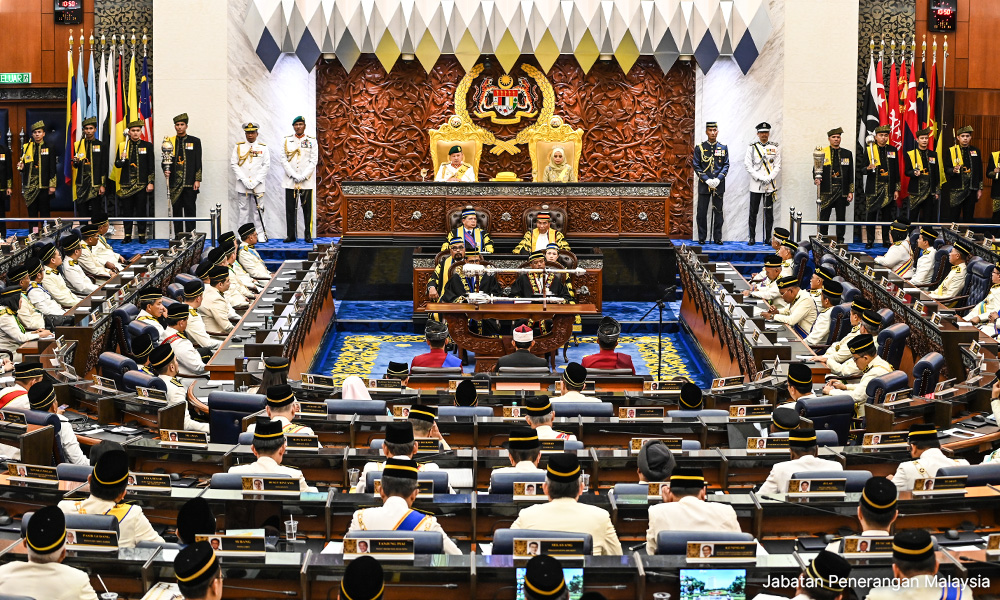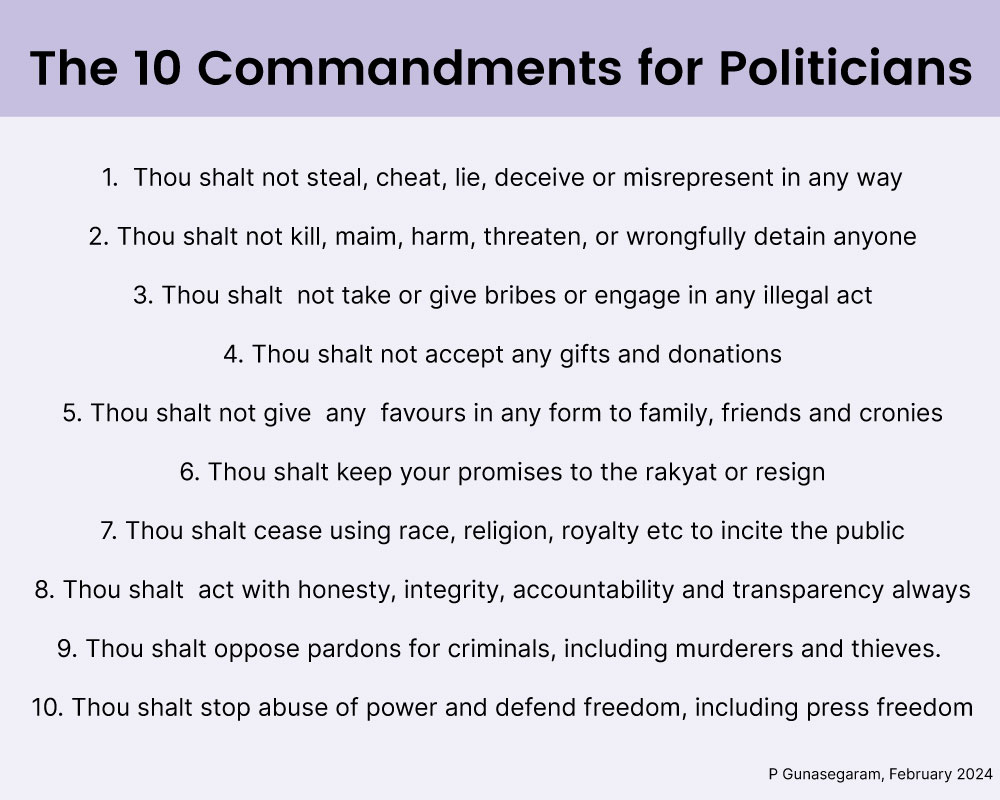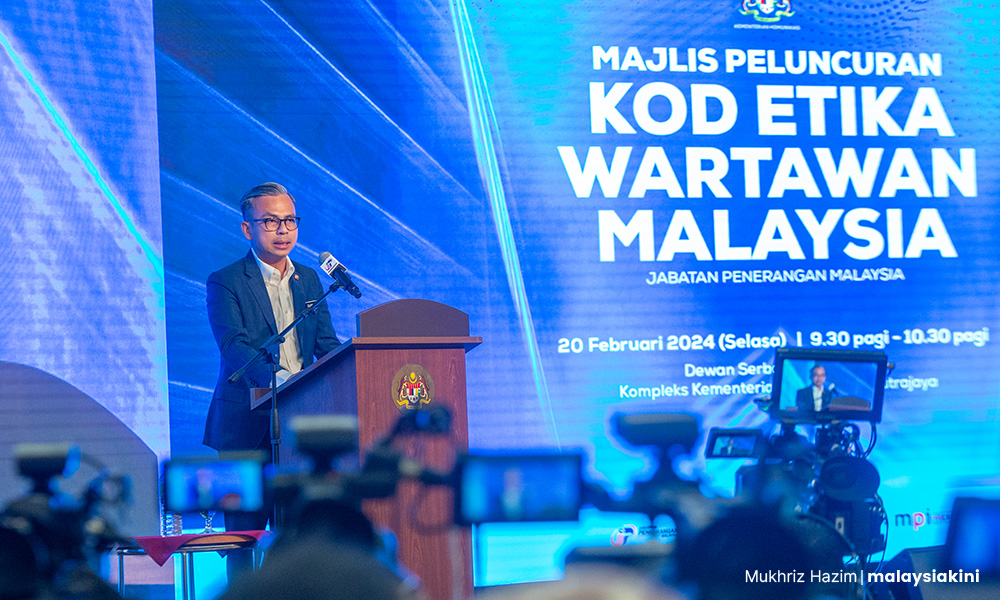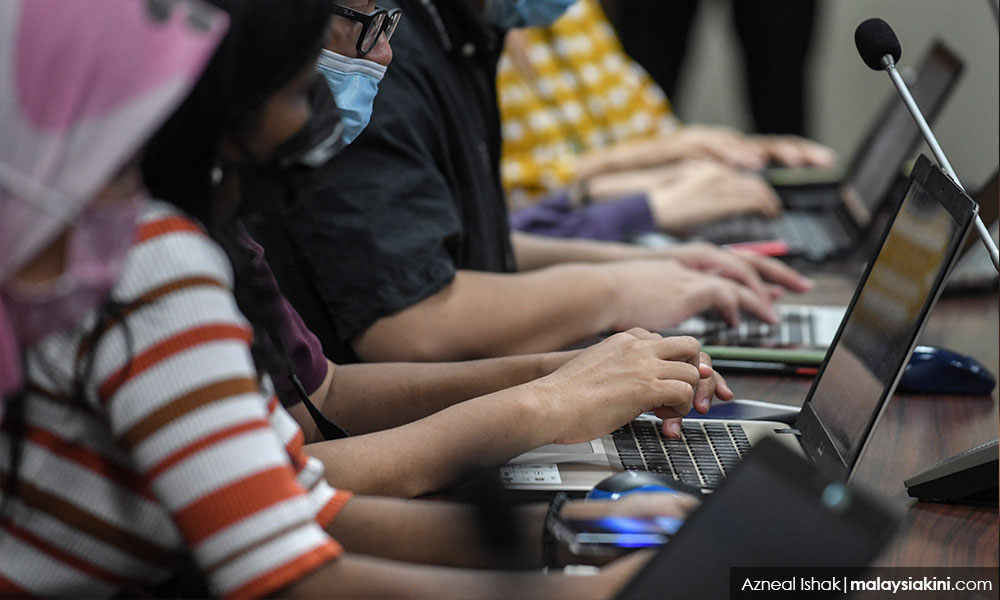Communications Minister Fahmi Fadzil has less to do after “digital” was stripped from his ministry and “communications” remains his only portfolio. Perhaps, that’s why he has taken to drawing up a code of ethics for journalists.
Incredibly, he took the rather draconian step of specifying that the ministry’s code, not the industry’s, would be used for press accreditation, a thinly disguised threat to the press to behave or else.
That’s rather inappropriate of PKR loyalist Fahmi, an engineer turned writer and actor who was deeply involved in social activism previously.
While Fahmi’s code of conduct seems a copy of the industry’s code of 1989, there are very significant differences.
To examine those is not the aim or the realm of this article, except to say that Fahmi has no business as communications minister - and therefore a conflicted party - to draw up a code of ethics for the media.
As a government representative who wants to suppress bad press about his government, he is biased.
Who needs a code?
Alright, I grant that not all journalists are ethical and I concede that all professions need a code of conduct and ethics. But tell me this, who anywhere in this whole wide world needs a code of conduct and ethics more than any other group of working people?

You said it, I didn’t, politicians! Of course! It’s probably the oldest profession in the world predating the oft-mentioned and more noble profession of prostitution which, it can be argued, provides a much-needed honest service.
So, as a citizen who suffers considerably from poor decisions (I am being kind here), loads of corruption, theft, deceit, lying, subterfuge, cheating, violence, abuse, misuse of state apparatus, etc, I propose a code of conduct and ethics for politicians.
So powerful will this be that instead of its staid, insipid name, I shall call it instead “The 10 Commandments for Politicians”.
I propose that all who intend to stand for any seat, state or parliamentary, public office, or hold any post in any political party must sign this code and pledge to honour it.
What gives me the right to do this? If Fahmi can propose one for journalists, why can’t any of us, as citizens, propose one for politicians? We have rights too.
Here’s the code, err, 10 Commandments. It’s something that any non-politician Malaysian will totally agree with. More than that, if every politician subscribes to it, the problem of corruption will vanish - almost overnight. How about that, PMX?

The do’s and don’ts
Let’s take a quick run through the commandments - as good commandments go, they are clear, concise and complete. The first five are things that politicians must not do.
That’s easy - stealing, killing, bribery, illegal acts, patronage, and all associated, linked acts are a no, no and must be scrupulously avoided, nevermind that politicians are naturally inclined to be unscrupulous.
Politicians are not paragons of virtue but we are trying to change all of them, remember, just as Fahmi is trying to change journalists, through a code of ethics.

The second five of the 10 commandments relates to what they must actively change to become better, and even good, and in time, excellent politicians - just as with the journalism code of ethics and excellence in journalism.
It requires a rather drastic change in mindset - where once you were used to breaking promises, you must now keep them. If you used race, religion and royalty issues to incite you must cease and desist forthwith.
If you had a problem with honesty, integrity, accountability and transparency before, it’s high time you changed your nefarious ways and converted to become as clean as a whistle. Which whistle you should blow if you come across unsavoury, indefensible deeds?
Oh, and with these changes in your mindset and your complete change of character to a person who is good, pious and responsible, how could you even think of pardoning thieves, murderers and crooks of any kind? You must be vociferous against such acts.
Now that you have changed, it will be unthinkable for you to abuse or misuse your powers (for example, selective prosecution and inexplicable withdrawal of serious charges and drops of appeals against dismissal of cases) and defend freedom.
And if you are afraid of nothing as you will be once you as a politician affirm the 10 commandments, then it will be no problem for the freedom to include press freedom, right? Yes, thanks.
Holding politicians accountable
Answer this, Fahmi: Has the press perpetuated thefts of billions of ringgit, corruption of colossal proportions, abuses of power, deception, lies and cheating of a massive scale or have they in some way at least, highlighted these and helped check their continuation despite repression from successive governments, including this one?
Tell me, who needs a code of ethics more, journalists or politicians?

But, as with all good things, we need action and feedback. Here’s a way - there’s a new role for Fahmi here. Let’s have a Politician’s Complaints Bureau (PCB) under the Communications Ministry - that’s the right one to handle communications, including that against politicians.
The public will forward complaints to the PCB, which once received will make it public in the interest of transparency and obtaining further information from the public. It will then be forwarded to the appropriate investigating authority.
This new PCB under Fahmi will then provide monthly updates and explanations until the matter is settled - that is the politician is cleared, resigns from politics, or is charged.
This is far better for the rakyat and the country than any lame journalists’ code of conduct. It is not the role of the government to throttle the media in any way from reporting legitimate issues of public interest. 1MDB should have taught that much. - Mkini
P GUNASEGARAM says that misinformation and fake news are easily rectified by truth. The trouble is too often it’s the less palatable alternative.
The views expressed here are those of the author/contributor and do not necessarily represent the views of MMKtT.

No comments:
Post a Comment
Note: Only a member of this blog may post a comment.